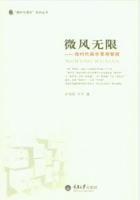PERSONS OF THE DIALOGUE: Critias, Hermocrates, Timaeus, Socrates.
TIMAEUS: How thankful I am, Socrates, that I have arrived at last, and, like a weary traveller after a long journey, may be at rest! And I pray the being who always was of old, and has now been by me revealed, to grant that my words may endure in so far as they have been spoken truly and acceptably to him; but if unintentionally I have said anything wrong, I pray that he will impose upon me a just retribution, and the just retribution of him who errs is that he should be set right. Wishing, then, to speak truly in future concerning the generation of the gods, I pray him to give me knowledge, which of all medicines is the most perfect and best.
And now having offered my prayer I deliver up the argument to Critias, who is to speak next according to our agreement. (Tim.)
CRITIAS: And I, Timaeus, accept the trust, and as you at first said that you were going to speak of high matters, and begged that some forbearance might be shown to you, I too ask the same or greater forbearance for what I am about to say. And although I very well know that my request may appear to be somewhat ambitious and discourteous, I must make it nevertheless.
For will any man of sense deny that you have spoken well? I can only attempt to show that I ought to have more indulgence than you, because my theme is more difficult; and I shall argue that to seem to speak well of the gods to men is far easier than to speak well of men to men: for the inexperience and utter ignorance of his hearers about any subject is a great assistance to him who has to speak of it, and we know how ignorant we are concerning the gods. But I should like to make my meaning clearer, if you will follow me. All that is said by any of us can only be imitation and representation. For if we consider the likenesses which painters make of bodies divine and heavenly, and the different degrees of gratification with which the eye of the spectator receives them, we shall see that we are satisfied with the artist who is able in any degree to imitate the earth and its mountains, and the rivers, and the woods, and the universe, and the things that are and move therein, and further, that knowing nothing precise about such matters, we do not examine or analyze the painting; all that is required is a sort of indistinct and deceptive mode of shadowing them forth. But when a person endeavours to paint the human form we are quick at finding out defects, and our familiar knowledge makes us severe judges of any one who does not render every point of similarity. And we may observe the same thing to happen in discourse; we are satisfied with a picture of divine and heavenly things which has very little likeness to them; but we are more precise in our criticism of mortal and human things.
Wherefore if at the moment of speaking I cannot suitably express my meaning, you must excuse me, considering that to form approved likenesses of human things is the reverse of easy. This is what I want to suggest to you, and at the same time to beg, Socrates, that I may have not less, but more indulgence conceded to me in what I am about to say. Which favour, if I am right in asking, I hope that you will be ready to grant.
SOCRATES: Certainly, Critias, we will grant your request, and we will grant the same by anticipation to Hermocrates, as well as to you and Timaeus; for I have no doubt that when his turn comes a little while hence, he will make the same request which you have made. In order, then, that he may provide himself with a fresh beginning, and not be compelled to say the same things over again, let him understand that the indulgence is already extended by anticipation to him. And now, friend Critias, I will announce to you the judgment of the theatre. They are of opinion that the last performer was wonderfully successful, and that you will need a great deal of indulgence before you will be able to take his place.
HERMOCRATES: The warning, Socrates, which you have addressed to him, I must also take to myself. But remember, Critias, that faint heart never yet raised a trophy; and therefore you must go and attack the argument like a man. First invoke Apollo and the Muses, and then let us hear you sound the praises and show forth the virtues of your ancient citizens.
CRITIAS: Friend Hermocrates, you, who are stationed last and have another in front of you, have not lost heart as yet; the gravity of the situation will soon be revealed to you; meanwhile I accept your exhortations and encouragements. But besides the gods and goddesses whom you have mentioned, I would specially invoke Mnemosyne; for all the important part of my discourse is dependent on her favour, and if I can recollect and recite enough of what was said by the priests and brought hither by Solon, I doubt not that I shall satisfy the requirements of this theatre. And now, making no more excuses, I will proceed.
Let me begin by observing first of all, that nine thousand was the sum of years which had elapsed since the war which was said to have taken place between those who dwelt outside the pillars of Heracles and all who dwelt within them; this war I am going to describe. Of the combatants on the one side, the city of Athens was reported to have been the leader and to have fought out the war; the combatants on the other side were commanded by the kings of Atlantis, which, as I was saying, was an island greater in extent than Libya and Asia, and when afterwards sunk by an earthquake, became an impassable barrier of mud to voyagers sailing from hence to any part of the ocean. The progress of the history will unfold the various nations of barbarians and families of Hellenes which then existed, as they successively appear on the scene; but I must describe first of all the Athenians of that day, and their enemies who fought with them, and then the respective powers and governments of the two kingdoms. Let us give the precedence to Athens.















